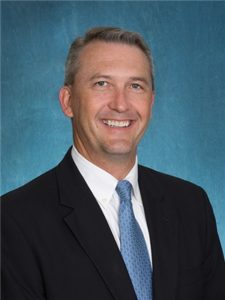By Diego Loredo
One of the biggest reasons why college can be stressful is because of final exams. It’s unavoidable. Every student has to take them at the end of the semester (unless your teacher decides to not have one). It can be really stressful studying for these exams, but they’re not that bad if you do the right things.
Final exams are almost here, which always causes students to stress out (myself included). My first semester experiencing college final exams was tough. I wasn’t really prepared and would often be up late at night in my dorm studying for my exam the next morning. But now that I’m a sophomore, I’ve gotten kind of used to finals and have developed my own way of studying for exams.
Review your notes!
I know this seems pretty obvious, but it isn’t something you should underestimate. Some professors do not provide review sheets and just say “your notes are your review sheets.” Trust me, it sucks when that happens. Hopefully this is something that you’ve been doing throughout the semester, if not ask to borrow a friend’s class notes. Read over your notes and maybe compare them with a classmate’s.
Work on the review sheet with your classmates
The more the merrier, right? Although you might prefer to study on your own so that you can focus, studying with a group of classmates has its advantages. You might learn something from your classmates that you might have missed during class. Also, if there is something you didn’t understand, maybe your classmates know and can help you understand. Working on the review sheet with a few classmates is always better in my opinion.
Study early
Don’t wait until the last minute to study for exams. It’s best to study about a week or two before the exam to ensure that you can go over the material as much as possible. Waiting until the night before to study for an exam is the worst thing you can do. I learned this the hard way. During my freshman year, I waited until the day before my final exam for statistics (which is the toughest class I have taken so far). That wasn’t a very smart decision, especially regarding how hard stats was for me, and I ended up getting a D on the exam. I got a C for the class, in my defense I was two points away from a B! Anyway, always make sure you study early on to make sure you don’t miss anything.
Have a friend quiz you
One good method of studying is having a friend quiz you over what will be on the exam. Ask your roommate or a classmate to ask you questions that will be on the exam. Keep track of those you get right and those you get wrong. Doing this will give you a sense of what you need to study and what you already know and don’t need to study as much. Do this several times until you are confident enough to take the exam. This will also help you memorize material for the exam.
Relax!
This is probably the most important thing to remember when studying for exams. Just relax! Don’t stress too much over exams, overthinking it will only hurt your chances of getting a good grade. There’s also such a thing of studying too much. Take a few breaks while studying. Just stay calm and be confident!
Exams can be intimidating, but if you study properly then you should do well. However, don’t get discouraged if you get a bad grade on one or more of your exams. It happens to all students, just think of what worked for you and what didn’t work and use that to come back stronger next semester. These last few weeks of the semester are always hectic, with final projects being due and studying for finals, but as long as you stay calm and study properly you should be fine. Best of luck!
 Diego Loredo is a sophomore at the University of North Texas. He is majoring in public relations. He graduated from University High School in 2014. Although he is still not quite sure what exactly he wants to do, he thinks he wants to work somewhere in sports PR (preferably soccer or college football). His hobbies include playing soccer and golf. He is 19 years old.
Diego Loredo is a sophomore at the University of North Texas. He is majoring in public relations. He graduated from University High School in 2014. Although he is still not quite sure what exactly he wants to do, he thinks he wants to work somewhere in sports PR (preferably soccer or college football). His hobbies include playing soccer and golf. He is 19 years old.
The Act Locally Waco blog publishes posts with a connection to these Aspirations for Waco. If you are interested in writing for the Act Locally Waco Blog, please email [email protected] for more information.
by Diego Loredo
You just graduated high school, you’ve been anticipating this moment all year, and now you’re finally here. You’re a college freshman! Although it can be fun and exciting, starting college can also be a huge challenge.
Starting college is a huge step in your career and in life. So don’t feel bad if you’re intimidated by it. Everyone goes through challenges during freshman year. Some may include making new friends, getting used to the classes, etc.
I’ve experienced many challenges my freshman year at UNT, so I know how it feels. My first semester was particularly tough. Mostly because of one class, statistics… That was, and still is, the toughest class I have ever taken. There were numerous homework assignments that took me hours to do, several exams that I studied all night for, and concepts that I just could not understand. Luckily, I made a few friends in that class who helped me get by. Statistics was also the first class ever where I got a D on an exam, which was the final exam (I still managed to pass with a C).
I didn’t really have any problems making any friends, literally the first week I moved into my dorm I made a small group of friends. Also, I was roommates with a good friend of mine that I have known since freshman year of high school. I introduced my roommate to my other friends and we all started hanging out all the time. We made a team for the outdoor soccer intramurals and met some other people who joined our team. After the tournament, which we made it to the playoffs but unfortunately lost 3-1, we had our own little group. They made it easier for me in my transition to college.
During my freshman year, I’ve encountered many different kinds of people, such as the guy who walks around campus with a flower pot on his head (I’m serious). I also enjoyed, and disliked, some of my classes and learned many things. Here are a few things that have helped me get through freshman year and will hopefully help you too as you continue to go through your transition into college and for others who will soon start their freshman year.
Find your own clique!
This is what I think is the most important thing to do your freshman year. You may have chosen to go to a college away from home to get a fresh new start, but it always helps to have a group of friends that you can depend on. Start by introducing yourself to people in your dorm or in your classes, or if you are living with a friend, the two of you can introduce yourselves to others. Having your own little clique will no doubt make college a lot easier, and more fun, for you.
Join an organization!
Your college is bound to have something that interests you. Whether it’s a debate club, photography club, or various sports clubs, find something you like! Joining some club or organization is always fun and it keeps you busy so that you won’t be stuck in your dorm all day (more on that later). Plus, joining an organization will help you meet people with similar interests as yours.
Attend events!
College campuses are always holding events to get their students involved. Your college should be no different. I’m sure there are countless events going on at your college every month. Go to a few of them! Get your roommate to go, or a few of your friends. Going to campus events are usually fun and you could win free stuff! Plus, it can get you interested in something you thought you never would.
Get to know your classmates!
This is extremely important. Introduce yourself to your classmates. I suggest you share notes or host study sessions. You never know when you will need your classmates’ help and vice versa. This will especially come in handy when exams start. Also, get to know your professor and attend study sessions held by TA’s.
Don’t stay in your dorm all day!
This was difficult for me. Every day after class I would head to my room and take a long nap. Sometimes I would just stay in bed all day. Luckily, my friends convinced me to get out more. If possible, don’t stay in your dorm all the time. Get out more! Hang out in your dorm lounge or game room, play sports outside, or go to various locations on campus with some friends. Although it’s fine to stay in your dorm every now and then, make sure that you go out too!
I’m not going to lie, freshman year was tough. It took me a while to get used to it but once I did, I became a lot more comfortable at UNT. My friends no doubt played a huge part in it. We made a lot of memories together, such as playing football in the snow and intramural sports. Along with having those friends, getting involved on campus helped as well. I believe these things that I did are what all freshman should do. Make new friends, get involved, study, and just have fun!
 Diego Loredo is a sophomore at the University of North Texas. He is majoring in public relations. He graduated from University High School in 2014. Although he is still not quite sure what exactly he wants to do, he thinks he wants to work somewhere in sports PR (preferably soccer or college football). His hobbies include playing soccer and golf. He is 19 years old.
Diego Loredo is a sophomore at the University of North Texas. He is majoring in public relations. He graduated from University High School in 2014. Although he is still not quite sure what exactly he wants to do, he thinks he wants to work somewhere in sports PR (preferably soccer or college football). His hobbies include playing soccer and golf. He is 19 years old.
The Act Locally Waco blog publishes posts with a connection to these Aspirations for Waco. If you are interested in writing for the Act Locally Waco Blog, please email [email protected] for more information.
(The Heart of Texas P-20 Council includes representatives from K-12 education, higher education and employers. They meet regularly to help coordinate efforts to launch our young people into productive lives as workers and citizens. This post is one in a monthly series of posts intended to share information about the work of this important group in our community. For more posts in this series, click here: P-20 education.)
By Ashley Canuteson
I have had the privilege of meeting some incredible people through my line of work over the past several years. A key facet of my job as College & Career Readiness Coordinator for Midway ISD is to help make connections between public educators, higher education, and folks in “the real world” – all for the benefit of students. After all, students need to leave us ready for success beyond high school. But students shouldn’t be the only ones who benefit from a group of constituents coming together to share ideas and learn from each other. My experiences have led me to realize that various partnerships coming from all of these efforts are mutualistic – they are not done solely for the benefit of students; rather, they are formed to truly help educate an entire community about how we can all work together for the successful advancement of an economically sound society. Wow! That was a mouthful! So, what does that mean exactly? I can best share an example of the power of mutualistic partnerships by telling the story of a wonderful advocate and community leader.
Rick Tullis, president of Capstone Mechanical and member of the Midway ISD Board of Trustees, was named this summer as one of four state Business Leaders of the Year by the Career & Technology Association of Texas (CTAT). He received this recognition because of a nomination written by Donna McKethan of Waco ISD, Christine Holecek of Education Service Center Region 12, and me. Through our work with each other, we came to realize that we all had seen the power of Mr. Tullis’ influence in a variety of ways. In addition to his commitments to Midway ISD, Mr. Tullis has been an active board member of the Greater Waco Advanced Manufacturing Academy (GWAMA), the Board of Directors for the Waco Business League, the Baylor School of Engineering Board of Advocates, the Baylor Scott & White/Hillcrest Board of Visitors, and the Board of Directors for the Waco Chamber of Commerce. Looking at his level of involvement, one can quickly see that Mr. Tullis is invested in the overall success of the Waco community. It is because of this far-reaching commitment and willingness to serve that he continues to make a lasting impact in the educational realm; however, it doesn’t stop there.
I have had the personal honor of working with Mr. Tullis in some of his volunteer roles – most specifically, with his time on the Steering Committee of the Heart of Texas P-20 Council. What I have realized in that time is that Mr. Tullis brings to the table a vision of shared learning for all. He isn’t there simply as a business representative trying to advise educators on what the world needs in its future workforce, although he shares some great perspective on that topic! He is also there to learn about how he can bring his network of colleagues into the world of education so we can all work together on helping our students become successful. “Preparing students is a shared responsibility of families, schools, and business,” said Tullis in a July interview with Hometown News. And he believes this wholeheartedly.
Mr. Tullis was an integral part of the collaboration between Waco ISD and various other school districts and business leaders who came up with the concept of the Greater Waco Advanced Manufacturing Academy. As GWAMA was coming to life, the educators learned plenty about the need for skilled graduates that exists in our local manufacturing workforce. It is fair to say that our local business leaders also learned much about the world of education. Together, these partners realized there are many ways they can work mutually to meet a variety of goals. Some of those goals benefit the educational institutions and some benefit local business. Even bigger than that, however, are the goals that are long term – the goals that focus on helping students today so that we help strengthen our community tomorrow.
It takes vision. It takes commitment. It takes time. It takes service. It takes a willingness to teach and a willingness to learn. It takes a team of partners focused on how they will contribute to the betterment of our community one relationship at a time. So how can YOU become a partner? How can you make a difference in the life of a student, or the life of a colleague, or the life of your community? We must expand our network of partners through open communication lines and specific opportunities for involvement. Mr. Tullis has challenged us all on the Heart of Texas P-20 Steering Committee to invite new partners to the table for discussions about ways we can all be involved in collaborating mutually on building a successful future. Ideas abound! Job shadowing for high school students, externships for teachers, career day involvement for younger students, college tours… the list goes on and on! Where can you find a fit and become a Partner with a Purpose? Our future needs you!
If you would like to get involved collaborating with the P-20 Council, please contact Fred Hills at McLennan Community College. His email is: [email protected].
 Ashley Canuteson is the Coordinator of College & Career Readiness at Midway ISD. She works with the district Career & Technical Education programs and has a passion for working with people. Ashley is a Waco native who graduated from Robinson High School, attended MCC before graduating from Baylor University, received her Masters degree from Tarleton State University, and is currently working on her Doctorate at Baylor. Ashley is the proud mom to two fabulous children – a future video game designer and a future geologist! She and her husband, Wade, enjoy volunteering together and traveling.
Ashley Canuteson is the Coordinator of College & Career Readiness at Midway ISD. She works with the district Career & Technical Education programs and has a passion for working with people. Ashley is a Waco native who graduated from Robinson High School, attended MCC before graduating from Baylor University, received her Masters degree from Tarleton State University, and is currently working on her Doctorate at Baylor. Ashley is the proud mom to two fabulous children – a future video game designer and a future geologist! She and her husband, Wade, enjoy volunteering together and traveling.
The Act Locally Waco blog publishes posts with a connection to these aspirations for Waco. If you are interested in writing for the Act Locally Waco Blog, please email [email protected] for more information.
(The Heart of Texas P-20 Council includes representatives from K-12 education, higher education and employers. They meet regularly to help coordinate efforts to launch our young people into productive lives as workers and citizens. This post is one in a monthly series of posts intended to share information about the work of this important group in our community. For more posts in this series, click here: P-20 education. )
By Rob Wolaver
It is said that progress does not come without change. That’s certainly the case at Texas State Technical College where we are in the midst of change the college hasn’t seen in its 50-year history. The process is all part of a transition to “single accreditation.” It’s a bold move inspired by economic growth and motivated by industry demand for a skilled workforce.
In the past, TSTC’s four legacy campuses, which ran semi-independently under the direction of TSTC System, would get individually accredited through the Southern Association of Colleges and Schools. Now, we’ll be accredited – reviewed for integrity and quality of student learning – as one college.
It may sound simple but as Chancellor Mike Reeser, who has led the efforts, will tell you, this has been, by far, one of TSTC’s greatest challenges, but one which eventually, could prove to be the zenith of our institution’s storied existence. This change will be remembered as a high point that will lay the foundation for the advancement, development and continued success of TSTC.
Already, we have successfully aligned personnel, programs, curriculum and learning outcomes. We now have a statewide course catalog and student handbook. And, we’ve revamped a consumer-friendly website. TSTC, with 11 campuses total, is now one college serving all of Texas.
It has been a demanding endeavor for the 1,715 employees across the state, and while the job is not finished, we’re well on our way. Now, what does this all mean to you and more importantly, what does this all mean to our TSTC students?
For Texans, One TSTC allows the college to standardize operations and eliminate duplications of work associated with separately accredited colleges. Combining resources will set the stage for expansion of instructional services into communities that need skilled workers or specialized training.
For our students, TSTC is better able serve you. The alignment allows us to better improve classrooms and keep our laboratories stocked with the latest industry tools and technology. Imperative, because we are a hands-on technical school with the goal of making sure you are skilled to start work the day you graduate.
For industry and employers, it means you keep getting technically-skilled workers who can hit the ground running. It means we keep meeting with industry leaders, to make sure our students are well prepared for the jobs at hand. It means we keep doing what we’ve always done best – job placement for the state.
For employees, it means that TSTC will continue to be the best place to work. A place dedicated to its mission of student access and success and its even bigger task of making sure Texas has the employees it desperately needs.
For Texas, this means a stronger economy and lower employment. Indicators of prosperity that benefit every proud resident. It means we continue working with state government and elected officials to make sure we are offering the programs that Texas industry needs and the economy demands.
For Waco, it means that TSTC in your community remains the flagship campus for all the college locations. It means that TSTC will continue to be a partner in education with surrounding ISDs as well as institutions like McLennan College and Baylor University.
The transition to single accreditation is further testament to TSTC’s administrative innovation. Just last year TSTC became the only college in Texas to adopt a funding model based entirely on student employment outcomes. Simply put, we’ll get paid when the student gets paid. TSTC as the saying goes, “putting your money where your mouth is.”
Bottom line, we’re not only investing but doubling down on the communities we serve, that includes Waco, Abilene, Breckenridge, Brownwood, Fort Bend County, Harlingen, Ingleside, Marshall, North Texas, Sweetwater and Williamson County.
As we continue the alignment process, we look forward to the next half century with optimism that our investment will pay off for our students and employers. Ultimately, we recognize that bold leadership and initiative will set the stage for success and the future prosperity of this great state we all call home.
 This Act Locally Waco blog post was written by Rob Wolaver. Rob began his professional career in 1989 at Tarleton State University and left Tarleton in 1992 to become the director of Student Activities and Housing at Texas State Technical College Waco. In the 24 years at TSTC, Rob has served in many leadership roles including, Associate Vice President, Vice President, Executive Vice President, Interim President, Provost. Rob is also active in his community where is on the board of Big Brothers/Big Sisters of Central Texas and chair of the Lorena Economic Development Council. Wolaver has served the City of Lorena as a City Council member and Mayor Pro-Tem.
This Act Locally Waco blog post was written by Rob Wolaver. Rob began his professional career in 1989 at Tarleton State University and left Tarleton in 1992 to become the director of Student Activities and Housing at Texas State Technical College Waco. In the 24 years at TSTC, Rob has served in many leadership roles including, Associate Vice President, Vice President, Executive Vice President, Interim President, Provost. Rob is also active in his community where is on the board of Big Brothers/Big Sisters of Central Texas and chair of the Lorena Economic Development Council. Wolaver has served the City of Lorena as a City Council member and Mayor Pro-Tem.
The Act Locally Waco blog publishes posts with a connection to these aspirations for Waco. If you are interested in writing for the Act Locally Waco Blog, please email [email protected] for more information.
(The Heart of Texas P-20 Council includes representatives from K-12 education, higher education and employers. They meet regularly to help coordinate efforts to launch our young people into productive lives as workers and citizens. This post is one in a monthly series of posts intended to share information about the work of this important group in our community. For more posts in this series, click here: P-20 education.)
By Ashley Canuteson
I have a dream – that every high school student be fully prepared to take the next steps toward their own dream after graduation; that they look back on their K-12 experience with a sense of accomplishment; that they have connections in place helping to bridge their postsecondary transition; that they take ownership in their goals and are committed to achieving them. I have that dream… and it guides my work each and every day.
As I conclude my sixteenth year in public education, I find myself looking forward to a summer of rest, relaxation, rejuvenation, and reflection. I know what you are thinking… It must be nice for educators to get three months off to do all of those things! You think we get three months off? Um, not exactly. As many educators do, I am still working long after the last student is gone. If I am not officially on contract, I am attending workshops or reorganizing my school space or meeting my colleagues for (gasp!) an actual meal away from campus! I am closing out last year’s paperwork and thinking ahead in planning for next year. Who has time to sit still when there is work to do that will make next school year even better?? That’s where the “reflection” piece of my summer plan comes in to play. When I reflect on the past school year, I ask myself three questions:
- What did I learn?
- How did I make a difference for kids?
- What can I do to make next year even more awesome?
As I sit here and ponder these questions, I realize there is a theme developing within my reflective thoughts: TEAMWORK. A simple word, really. Well, actually, it is a compound word, but that is a grammar lesson for another day! TEAMWORK. One of my go-to motivational authors, John C. Maxwell, wrote a book in 2002 titled Teamwork Makes The Dream Work. His overarching message in the book is that cooperation enhances the collective comparative advantage of a team, making group specialization more productive than individual concentration. I rather like that explanation of TEAMWORK. There is a lot to be said about the importance of TEAMWORK in the realm of education. Teachers cannot simply educate students in isolation – they need to make connections across disciplines and outside of the classroom. Parents are strong contributors to the educational team by supporting their child’s needs both in the home and at school. Counselors advocate for students, but can’t do it without communicating with college partners and other community constituents. All of these moving pieces must work in tandem to achieve a common goal: prepare today’s students for success in tomorrow’s world. What does that look like? Is it the same for every child? Absolutely not! So how do we develop an individualized educational experience for every student? T-E-A-M-W-O-R-K! We simply cannot do it in isolation. Every member of the community plays an important role in the education of today’s young people! What role do you play? Tax payer? Volunteer? Employer? Parent? Educator? How can you make a difference?
I would love to share with you a story about a really impactful event that took place this past spring at Midway High School. I believe it embodies the very essence of how powerful TEAMWORK can be. This annual college and career experience, called Junior Round-Up, brought together a variety of teammates who were committed to building relationships, developing real-world learning opportunities for students, and finding ways to connect public educators with college and career partners. The event was divided into two parts. First, all eleventh grade students at the high school attended a morning full of breakout sessions where they heard from various college representatives and career panelists. Baylor, Texas A&M, Tarleton, Texas Tech, TSTC, and MCC were all in attendance and talked with students about a variety of college-related hints and processes. Career panelists representing roughly 50 local businesses were selected based on student career goals, and were then grouped into panels based on their career alignment to the Endorsements defined within the new Texas Foundation High School Program graduation guidelines. Student feedback on the event was quite positive! It is designed to be generally informative while also being framed around individual student goals as much as possible. The hope is that students walk away with an idea of how they will work to achieve their dreams beyond high school.
In addition to the student portion of the event, this year we tried something new! In partnership with the Heart of Texas P-20 Council, Midway ISD hosted all of the speakers and panelists for a working lunch graciously sponsored by a local community partner, Capstone Mechanical. Counselors and other staff members from neighboring school districts were invited to join the working lunch, and the time was spent brainstorming ideas about how everyone could work together – no matter what role they play – to develop relationships from which students could benefit. Business representatives shared their willingness to speak to students, offer student internships, give company tours, and serve in advisory roles. College partners talked with high school teachers about bridging expectations to better prepare students for the transition to college. These are just two general examples of the true synergy that was developing. Incredible ideas were born at this event because of TEAMWORK!
The really cool thing is that, because of one of those conversations, several students have already reaped the benefits. One example of this is evident in the continued growth of the relationship between Midway High School and Central National Bank. Bryan Fonville, Marketing Director at CNB, met with several business/technology teachers from MHS at the luncheon and – using TEAMWORK – they came up with the idea that students could help write, direct, film, edit, and produce a video for the bank. The students who were selected got to film on site at the bank, and learned a bit about financial planning while also applying their technology skills to a real-world project. The collaborative effort was a great success and the students walked away from the experience with authentic connections that will positively impact them long after they are out of the classroom. And they demonstrated TEAMWORK in their learning.
Still wanting more examples linking TEAMWORK to student success? Envision in your mind students who get to spend time in the summers as Junior Volunteers at Providence Hospital; teens who are invited to complete an internship with Space X one summer that leads to them getting a job offer after high school; kids of all ages who participate in extended learning through educational camps or college course offerings. What kids learn in these real-world situations helps them explore career interests while applying knowledge they gain during the school year. These opportunities are available to local students so they can gain unique experiences that cannot be replicated in a school setting. TEAMWORK makes these things happen. It’s a commitment made by our community that ensures our current generation is prepared to lead us into the future! Do you believe that TEAMWORK can make the dream work? I do. I have a dream… and I believe in our community team! Though school is out for summer, the work doesn’t stop. Consider joining forces with an educator, a school partner, a co-worker, a volunteer group, or even a student; and find a way to be a part of the TEAMWORK that makes the dream work.
 This Act Locally Waco blog post was written by Ashley Canuteson. Ashley is the Coordinator of College & Career Readiness at Midway ISD. She works with the district Career & Technical Education programs and has a passion for working with people. Ashley is a Waco native. She attended elementary and middle school at Midway before graduating from Robinson High School. After two years at McLennan Community College, Ashley attended Baylor University where she received her Bachelor of Science degree in Education. She went on to receive her Master’s degree in Educational Administration from Tarleton State University and is on track to complete her doctorate in Curriculum and Instruction from Baylor University sometime next school year. Ashley is the proud mom to two fabulous children – a future video game designer and a future geologist! She and her husband, Wade, enjoy volunteering together and traveling.
This Act Locally Waco blog post was written by Ashley Canuteson. Ashley is the Coordinator of College & Career Readiness at Midway ISD. She works with the district Career & Technical Education programs and has a passion for working with people. Ashley is a Waco native. She attended elementary and middle school at Midway before graduating from Robinson High School. After two years at McLennan Community College, Ashley attended Baylor University where she received her Bachelor of Science degree in Education. She went on to receive her Master’s degree in Educational Administration from Tarleton State University and is on track to complete her doctorate in Curriculum and Instruction from Baylor University sometime next school year. Ashley is the proud mom to two fabulous children – a future video game designer and a future geologist! She and her husband, Wade, enjoy volunteering together and traveling.
The Act Locally Waco blog publishes posts with a connection to these aspirations for Waco. If you are interested in writing for the Act Locally Waco Blog, please email [email protected] for more information.
(The Heart of Texas P-20 Council includes representatives from K-12 education, higher education and employers. They meet regularly to help coordinate efforts to launch our young people into productive lives as workers and citizens. This post is one in a monthly series of posts intended to share information about the work of this important group in our community. For more posts in this series, click here: P-20 education. — ABT)
By Christine Holecek
AVATAR is not just an icon or figure representing a person in a video game and it is not a blue hybrid alien from a movie. AVATAR in the Heart of Texas stands for “Academic Vertical Alignment Training and Renewal.” It is a joint project, now in its third year, organized by the Education Service Center Region 12 (ESC Region 12) and the Heart of Texas P20 Council to bring together local school districts and local colleges to collaborate on high school transition to college.
![]() Year one looked specifically at High School English Courses (AP and Dual Credit) and expectations for college English courses. Critical conversations were held on the alignment that needs to happen for students to be more successful in college. Great strides were made. For example, high school and college teachers worked together to develop a tool for all teachers to use to grade essays consistently and holistically.
Year one looked specifically at High School English Courses (AP and Dual Credit) and expectations for college English courses. Critical conversations were held on the alignment that needs to happen for students to be more successful in college. Great strides were made. For example, high school and college teachers worked together to develop a tool for all teachers to use to grade essays consistently and holistically.
Year two’s project added math to the equation. Representatives from both ELAR (English, Language Arts and Reading) and Math disciplines began discussing the College Preparatory course requirements introduced by House Bill 5 in 2012. These course offerings are now required by the legislature to help students be better prepared to enter college without remediation. High School and College ELAR and Math teachers worked with McLennan Community College (MCC) to develop a course that was made available the fall of 2014. School districts interested in using the college prep course can complete a Memorandum of Understanding (MOU) with MCC.
A College Prep Course symposium was held in September 2014 to introduce school districts to local college offerings. Representatives from McLennan Community College, Texas State Technical College, Hill College, Temple College, and Central Texas College provided an overview of their new College Prep Courses that provide course content in English/Language Arts and Mathematics. Each college representative answered specific questions related to course design and MOUs. This symposium offered a format that allowed participants to attend one or all of the college overviews.
Year three’s focus brought counselors into the fold. Their discussions about college transition will result in a “Frequently Asked Questions” document about what students need to know as they transition to college. The counselors are continuing their work together with critical conversations around college and career readiness, dual credit courses and college prep courses. They have been meeting once a month (February – May) to discuss trends and issues in college and career readiness. Counselors will also review and critique college and career readiness products: such as the Texas Online College and Career Readiness Resource Center.
Planning for year four has begun. Career and Technical Education (CTE) teachers will be asked to contribute expertise into high school endorsement pathways. Six year plans will be created in the areas of Business and Industry, Public Services, and Science, Technology, Engineering and Math (STEM).
For more information about the AVATAR program, please contact Christine Holecek [email protected].
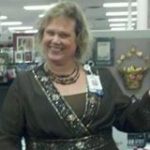 This Act Locally Waco blog post was written by Christine Holecek. Christine is an Education Specialist at Education Service Center Region 12 in Waco. She has worked in the area of Adult Education and Career & Technical Education for the past 25 years. She earned an AAS degree from MCC, a BAAS and Master’s Degree from the University of North Texas and is currently enrolled in the Doctoral Program in Educational Leadership and Policy Studies at Tarleton State University.
This Act Locally Waco blog post was written by Christine Holecek. Christine is an Education Specialist at Education Service Center Region 12 in Waco. She has worked in the area of Adult Education and Career & Technical Education for the past 25 years. She earned an AAS degree from MCC, a BAAS and Master’s Degree from the University of North Texas and is currently enrolled in the Doctoral Program in Educational Leadership and Policy Studies at Tarleton State University.
The Act Locally Waco blog publishes posts with a connection to these aspirations for Waco. If you are interested in writing for the Act Locally Waco Blog, please email [email protected] for more information.
By Donna McKethan
In the Fall of 2015, the Greater Waco Advanced Health Care Academy (GWAHCA) will open its doors to Waco area juniors and seniors who are interested in pursuing a career in the health care industry. The Greater Waco Advanced Health Care Academy is a unique and innovative collaboration between the local health care community and Waco Area School Districts. GWAHCA will create a challenging learning environment that encourages high expectations for student success in the Health Care Field. The academy will empower students to successfully be competitive and workforce ready in our community and a global society.
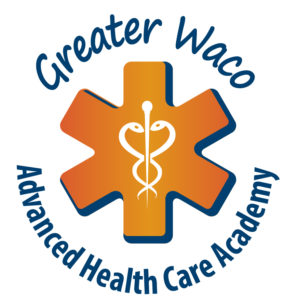 GWAHCA follows a model similar to the Greater Waco Advanced Manufacturing Academy, which aims to give students a head start in careers in welding and manufacturing. Officials from area school districts, McLennan Community College, Texas State Technical College and area health care industry leaders have been meeting over the last two years to determine health care industry needs and how to best serve students. The twin philosophies of realism and experimentalism are embedded in the attitudes and beliefs behind the planning and remodeling of GWAHCA. These philosophies have been expressed by the members of the GWAHCA Executive and Steering Committees. The idea behind not only the curriculum but also the facility is to give students an experience that aligns with what they will encounter when they graduate and begin a career in the health care industry. Partners support GWAHCA, an academy that fosters a sense of community among students, staff, parents, partners and neighbors. GWAHCA students will develop a sense of self-esteem and respect for themselves and others. Through a diverse and challenging curriculum, focusing on basic science, GWAHCA will cultivate student interest in various sciences and health professions. GWAHCA will provide a quality education and experiences that will prepare students to develop the academic, social and personal qualities necessary to realize their fullest potential as lifelong learners and productive, caring citizens of the world.
GWAHCA follows a model similar to the Greater Waco Advanced Manufacturing Academy, which aims to give students a head start in careers in welding and manufacturing. Officials from area school districts, McLennan Community College, Texas State Technical College and area health care industry leaders have been meeting over the last two years to determine health care industry needs and how to best serve students. The twin philosophies of realism and experimentalism are embedded in the attitudes and beliefs behind the planning and remodeling of GWAHCA. These philosophies have been expressed by the members of the GWAHCA Executive and Steering Committees. The idea behind not only the curriculum but also the facility is to give students an experience that aligns with what they will encounter when they graduate and begin a career in the health care industry. Partners support GWAHCA, an academy that fosters a sense of community among students, staff, parents, partners and neighbors. GWAHCA students will develop a sense of self-esteem and respect for themselves and others. Through a diverse and challenging curriculum, focusing on basic science, GWAHCA will cultivate student interest in various sciences and health professions. GWAHCA will provide a quality education and experiences that will prepare students to develop the academic, social and personal qualities necessary to realize their fullest potential as lifelong learners and productive, caring citizens of the world.
The first programs to be offered at GWAHCA will be the Certified Nursing Assistant (CNA) and Advanced CNA programs. The CNA curriculum will follow the current program offered at McLennan Community college. The Advanced CNA course is being developed in collaboration with Providence and Baylor Scott and White (Hillcrest) Hospital Staff. This curriculum development is an exciting process and will result in an amazing and rigorous program. In addition to the CNA course, juniors will also take Anatomy & Physiology, Counseling and Mental Health and Medical Terminology. Seniors (who have completed the CNA certification) will take Phlebotomy and a soft skills course that will include training in the hospitals computer system. Both hospitals have promised to hire all students who successfully complete the Advanced CNA program.
GWAHCA will be located on the campus of the former Viking Hills Elementary school. The campus is located on Viking Drive just off Fish Pond Road. All Juniors and Seniors within 45 minutes of the academy are eligible to attend. Applications are currently being accepted. For more information, contact Donna McKethan (254 755 9573 or [email protected])
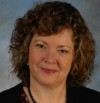 This Act Locally Waco blog post was written by Donna McKethan. Donna is the Career and Technology Director at Waco ISD. She has 33 years in education, the last 15 with WISD Career and Technology. She is currently the President of The Career and Technology Association of Texas. She is a WISD graduate with a BS in Home Economics Education from Baylor University and an MS of Education from Tarleton State University. She is currently enrolled in the Doctorial Program in Educational Leadership at Tarleton State University.
This Act Locally Waco blog post was written by Donna McKethan. Donna is the Career and Technology Director at Waco ISD. She has 33 years in education, the last 15 with WISD Career and Technology. She is currently the President of The Career and Technology Association of Texas. She is a WISD graduate with a BS in Home Economics Education from Baylor University and an MS of Education from Tarleton State University. She is currently enrolled in the Doctorial Program in Educational Leadership at Tarleton State University.
The Act Locally Waco blog publishes posts with a connection to these aspirations for Waco. If you are interested in writing for the Act Locally Waco Blog, please email [email protected] for more information.
by James Karney
When I was a little boy in Bristol, Connecticut, one of my favorite toys was a well-worn set of Lincoln Logs that belonged to my older brothers. I would spend hours building cabins and forts out of the pieces; I can still feel the smooth texture of the logs and green roof slats in my hands. I’d play with the plastic frontiersman and animals creating stories and dialog; occasionally a GI Joe would make an appearance too. Those are great childhood memories, but what do building toys like Lincoln Logs and Legos and blocks have to do with the library?
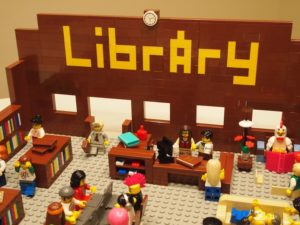 One role of the public library is to be a preschooler’s door to learning. As you already know, the library is a place children visit with parents and caregivers to be introduced to books and to begin to develop a love of reading, and learning. Library programs such as storytime help to develop school readiness skills such as listening, paying attention, following directions, and playing with other children. This, like many of the other programs and services of the library, folds into the one of the eight assumptions, of the Greater Waco Education Alliance. Participating in library storytime specifically addresses the first assumption, “Develop learning readiness and social skills before entering school (ages 0–4).” Storytimes for children are a staple of public libraries. At the Waco-McLennan County Library early childhood programming walks with children and parents from infancy with “Baby Time,” to “Toddle Time,” and then to “Pre-School Storytime.” (By the way, after a busy summer, Miss Vivian and Miss Stacy are taking a breather in August. Storytimes will resume the week of September 9th. )
One role of the public library is to be a preschooler’s door to learning. As you already know, the library is a place children visit with parents and caregivers to be introduced to books and to begin to develop a love of reading, and learning. Library programs such as storytime help to develop school readiness skills such as listening, paying attention, following directions, and playing with other children. This, like many of the other programs and services of the library, folds into the one of the eight assumptions, of the Greater Waco Education Alliance. Participating in library storytime specifically addresses the first assumption, “Develop learning readiness and social skills before entering school (ages 0–4).” Storytimes for children are a staple of public libraries. At the Waco-McLennan County Library early childhood programming walks with children and parents from infancy with “Baby Time,” to “Toddle Time,” and then to “Pre-School Storytime.” (By the way, after a busy summer, Miss Vivian and Miss Stacy are taking a breather in August. Storytimes will resume the week of September 9th. )
 Storytime is certainly an important stepping stone on the path to a love of learning, but at the library we recognize it is not the only stone in the path. In addition to weekly storytimes, the library offers other programming for children. Two programs we started last year have developed loyal and nearly overwhelming followings: a monthly “Lego Lab” for children 6-12, and a “Block Party” for Toddlers and Pre-K. Playing with blocks helps children develop motor, spatial, social and language skills and creative play. These skills are pretty obvious to anyone who has ever watched a toddler play and stack wooden blocks.
Storytime is certainly an important stepping stone on the path to a love of learning, but at the library we recognize it is not the only stone in the path. In addition to weekly storytimes, the library offers other programming for children. Two programs we started last year have developed loyal and nearly overwhelming followings: a monthly “Lego Lab” for children 6-12, and a “Block Party” for Toddlers and Pre-K. Playing with blocks helps children develop motor, spatial, social and language skills and creative play. These skills are pretty obvious to anyone who has ever watched a toddler play and stack wooden blocks.
Not so obvious are the long-term science, math and problem solving skills being developed. These skills support the third assumption of the Education Alliance, “Master math concepts (ages 9 to 17).” The research makes this connection plain:
• A longitudinal study by Wolfgang, Stannard and Jones found that beginning in the middle school years and onward through high school that there was a positive correlation between pre-school block play and mathematical achievement. (Journal of Research in Childhood Education, v15 n2 p173-80 Spring-Summer 2001)
• A 2009 article by Sarama and Clements explores the benefits of block and Lego play. (American Journal of Play p313-337 Winter 2009). At younger ages, pattern recognition, colors, shapes and counting are central to block and Lego play and with age come more complex skill development.
• For the differently abled, a 2006 study found that therapeutic play using Legos has a positive impact on social skill development of autistic children. (Autism, v10, n4 p317-29 July 2006).
In addition to the STEM (Science, Technology, Engineering and Math) benefits of block and Lego play, there are also language, literacy and social skills being developed. In group play with other children, a child learns about sharing and turn taking.
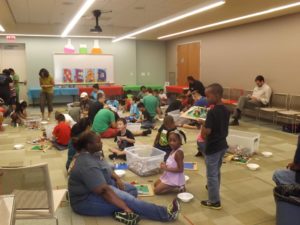 Playing with blocks is a terrific way for parents to bond with their children and to act on their role as a child’s first teacher. Children get the most benefit from block play when parents and caregivers get on the floor and play alongside their children taking the opportunity to teach colors and counting, to compare block sizes and shapes, and perhaps most important of all, to share vocabulary with the child. Vocabulary development is a key to learning to read. The more children are exposed to new and different words, the more success they will have in learning to read and developing their reading skills. One of the best investments you can make in your child’s education is to spend time with them whether it is reading books, playing with Legos, or just talking with them. Hart and Risley found children’s academic successes at ages nine and ten are attributable to the amount of talk they hear from birth to age three. Meaningful Differences in the Everyday Experience of Young American Children. (Brookes Publishing 1995).
Playing with blocks is a terrific way for parents to bond with their children and to act on their role as a child’s first teacher. Children get the most benefit from block play when parents and caregivers get on the floor and play alongside their children taking the opportunity to teach colors and counting, to compare block sizes and shapes, and perhaps most important of all, to share vocabulary with the child. Vocabulary development is a key to learning to read. The more children are exposed to new and different words, the more success they will have in learning to read and developing their reading skills. One of the best investments you can make in your child’s education is to spend time with them whether it is reading books, playing with Legos, or just talking with them. Hart and Risley found children’s academic successes at ages nine and ten are attributable to the amount of talk they hear from birth to age three. Meaningful Differences in the Everyday Experience of Young American Children. (Brookes Publishing 1995).
The Library’s Lego Lab (Saturday) for children and toddler/Pre-K Block Party (Sunday) using Legos and blocks are held monthly. For days and times and to reserve a space for your child, visit the library’s online events calendar. The name Lego comes from the Danish phrase leg godt, which means “play well”, so come play well at the library and continue to Read, Waco, Read!
 This Act Locally Waco blog post is by James Karney. James has worked in a library since his sophomore year in high school and is the Director of the Waco-McLennan County Library. He enjoys reading biographies, history, and spy/espionage novels. He has been married to the super amazing and talented Anita Karney for 20 years, and their son Jamie will start his junior year of high school this year – yikes! Visit the Library’s website, www.wacolibrary.org to explore all of our services, program and resources and “Like Us” on Facebook at, www.facebook.com/WacoLibrary.
This Act Locally Waco blog post is by James Karney. James has worked in a library since his sophomore year in high school and is the Director of the Waco-McLennan County Library. He enjoys reading biographies, history, and spy/espionage novels. He has been married to the super amazing and talented Anita Karney for 20 years, and their son Jamie will start his junior year of high school this year – yikes! Visit the Library’s website, www.wacolibrary.org to explore all of our services, program and resources and “Like Us” on Facebook at, www.facebook.com/WacoLibrary.
If you would like to write a post for the Act Locally Waco blog, please contact Ashley Thornton by email at [email protected] .
By Jodi Terwilliger-Stacey
Waco is the research and technology corridor between Dallas and Austin. It boasts top quality education in science, technology, and engineering at its local colleges and universities – Texas State Technical College (TSTC) (offering students approximately 100 certificate and degree areas), McLennan Community College (MCC) (offering students cutting-edge technology and opportunities for field research), and Baylor University. It’s the home of the Central Texas Research and Technology Park with its most recent project – the Baylor Research and Innovation Collaborative (BRIC)! It’s the birthplace of the Greater Waco Advanced Manufacturing Academy, offering academic programs and workforce readiness in a variety of fields to high school students from local ISDs. Waco’s Drop Back In to School Initiative connects those seeking higher education and better jobs to representatives of these local colleges and universities, as well as representatives of local job readiness programs!
Check out MCC’s LEAP classes (Learning Environment Adaptability Project), serving to develop full-time, first year students’ skills that enable them to adapt to college life and to be successful in their courses of study. LEAP classes teach learning strategies, as well as emotional intelligence skills, such as self-management skills (being motivated and managing one’s time), intrapersonal skills (self-esteem and stress management), leadership skills (problem solving and conflict resolution), and interpersonal skills (managing anxiety and anger and being assertive). LEAP is innovative and broad-spectrum, making MCC a leader in the development of strategies to increase student retention and success in higher education.
Watch for more information about the BRIC’s 45,000 square feet workforce development and training center to be used by TSTC – a BRIC partner. BRIC scientists, engineers, and technicians will be developing technology for BRIC business clients. TSTC Waco faculty will be on site working with those developing the technology and consulting with BRIC clients to design workforce training as products are being developed. Now that’s innovative!
Would you like to join the workforce with a career upon graduating from high school? The Greater Waco Advanced Manufacturing Academy will be offering academic programs to high school students from local ISDs in the fields of welding (fall 2013), precision metal manufacturing (fall 2013), brick laying and construction (fall 2014), HVAC (fall 2014), and pipe-fitting (fall 2015)!
Waco is paving the way for its citizens to come back to education, to achieve their higher education goals (certifications, 2-year degrees, and 4-year degrees), and to begin careers in a variety of science and technology fields where workforce needs are greater. Waco is connecting the dots among industry leaders, the STEM community (science, technology, engineering, and math), college and university faculty, and other leaders in workforce training. By doing so, there’s only one direction for Waco – FORWARD.
This week’s post was written by Jodi Terwilliger-Stacey. Jodi founded the Low Income Families In Transition (L.I.F.T) workshops at First Baptist Church in Waco and worked at the Greater Waco Community Education Alliance as a community resources specialist. She and her family now live in Colorado, but she still has a warm spot in her heart for Waco. If you are interested in writing occasionally for the Act Locally Waco Blog, please email Ashley Thornton at [email protected] .

